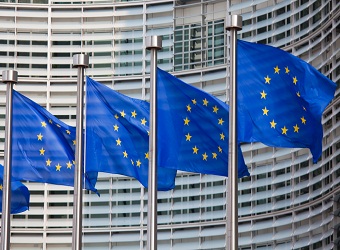Business activity in eurozone eased slightly in January according to the latest purchasing managers index dropped to 54.3 from 54.4 in December, IHS Markit said on Tuesday.
Nonetheless the reading was one of the highest over the past five-and-a-half years.
“The eurozone economy has started 2017 on a strong note. The January flash PMI is signalling respectable quarterly GDP growth of 0.4 percent with a broad-based expansion across both manufacturing and services,” Chris Williamson, chief business economist at IHS Markit said in a statement.
IServices PMI stood at 53.6 from 53.7 in December and manufacturing PMI was 55.1, up from 54.9 last month.
The data showed a recovery in the labour market with the largest monthly rise in employment figures since February 2008.
“Firms’ expectations about the year ahead are running at the highest for at least four-and-a-half years, highlighting how political risk continues to be widely eschewed, with companies focusing instead on expanding their sales in the coming year,” Williamson added. In France, the composite index went up to 53.8 from 53.1 in December, a 67-month high.
“The latest PMI data suggested that the French private sector continued to grow at a solid rate in January,” Alex Gill, economist at IHS Markit said in a statement.
Services activity rose to 53.9 from 52.9 in December. Manufacturing PMI dropped slightly from 53.5 to 53.4. Despite the modest fall, manufacturing firms noted a fifth successive rise in output.
“The expansion was broad-based with marked increases in output evident in both the manufacturing and service sectors, driven by firm underlying client demand. In turn, this filtered through into the labour market as evidenced by the sharpest rise in staffing numbers since December 2011,” Gill added.
In Germany, the largest EU economy, growth in the private sector showed some signs of easing but manufacturing remained strong.
“The first flash PMI of 2017 highlighted diverging performance in Germany’s private sector economy. Whereas manufacturers signalled an accelerating upturn fuelled by stronger domestic and international demand, growth slowed in the dominant service sector. Consequently, business activity across Germany as a whole rose at the slowest pace in four months,” Philip Leake, economist at HIS Markit said in a statement.
The flash German PMI composite was 54.7 from 55.2 in December, reaching a four-month low. Services activity dropped from 54.3 last month to 53.2 but manufacturing PMI was slightly higher at 56.5.
However, German companies in both services and manufacturing expect a healthy growth throughout this year.
Source: CNBC


